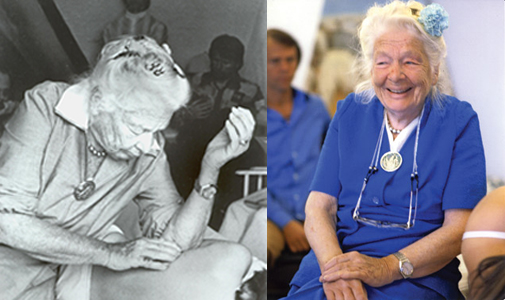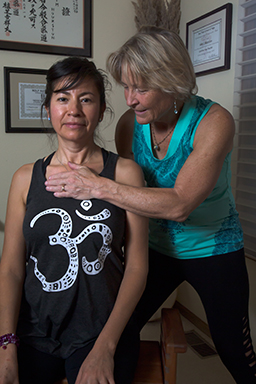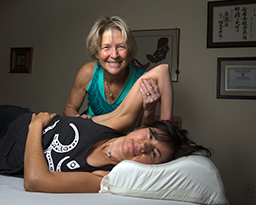What is Rolfing?
Rolfing Structural Integration is a form of bodywork that reorganizes the connective tissues, called fascia, that permeate the entire body.
Named after its founder, Dr. Ida P. Rolf, more than fifty years ago, Dr. Rolf recognized that the body is inherently a system of seamless networks of tissues rather than a collection of separate parts. These connective tissues surround, support and penetrate all of the muscles, bones, nerves and organs. Rolfing works on this web-like complex of connective tissues to release, realign and balance the whole body. Essentially, the Rolfing process enables the body to regain the natural integrity of its form, thus enhancing postural efficiency and your freedom of movement.
What are the Benefits?
Rolfing Structural Integration has the ability to dramatically alter a person’s posture and structure. Rolfing can potentialy resolve discomfort, release tension and alleviate pain. Rolfing aims to restore flexibility, revitalize your energy and leave you feeling more comfortable in your body.
Athletes, dancers, children, business professionals, and people from all walks of life have benefited from Rolfing. People seek Rolfing as a way to ease pain and chronic stress, and improve performance in their professional and daily activities. It’s estimated that more than 1 million people have received Rolfing work.
Research has demonstrated that Rolfing creates a more efficient use of the muscles, allows the body to conserve energy, and creates more economical and refined patterns of movement. Research also shows that Rolfing significantly reduces chronic stress and changes in the body structure. For example, a study showed that Rolfing significantly reduced the spinal curvature of subjects with lordosis (sway back); it also showed that Rolfing enhances neurological functioning.
Rolfing is a registered service mark in 27 countries.
![]()
![]()
Courtesy of Rolf Institute of Structural Integration



